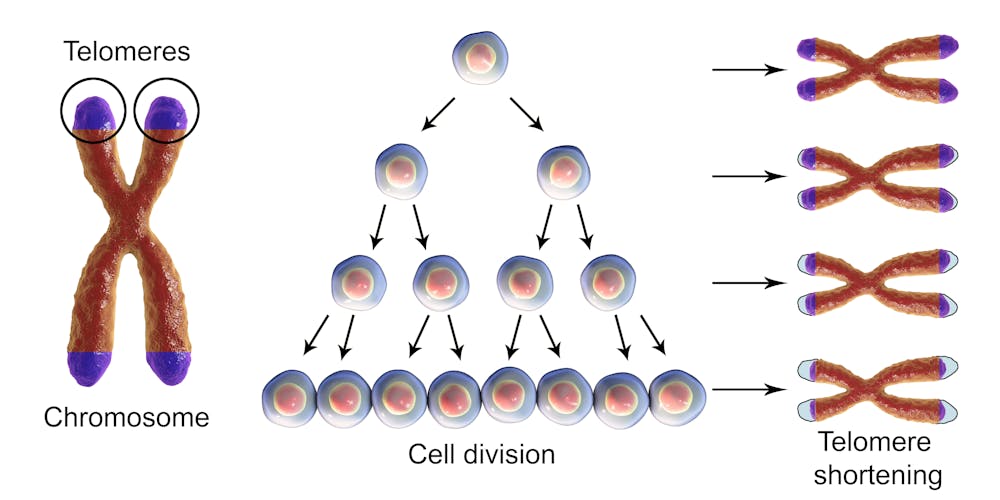
There are many different kind of dementias and each one has their own cause, Alzheimer's is a build up of plaques in the brain, Vascular dementia is caused when brain blood vessels fail (meaning the brain isn't getting proper oxygen), and Lewy bodies are the build up of malformed proteins in the brain. All of these causes have one thing in common, they are the results of specific cells breaking down.
In short, our DNA has these end caps called telomeres, that shorten as we age. It's excess data made to protect our chromosomes from fusing together or degrade from cell division. When we get older, there's less telomeres, and our cells begin to fail at maintaining bodily functions, like producing enzymes to keep plaques from building up, or maintaining the integrity of blood vessels.
This is where the gene therapy comes in, geneticists in Michigan are looking at repairing these telomeres with an enzyme that extends a chromosome's telomere strands called telomerase. Now if we know there is a way to repair telomeres, why haven't we tested already? Telomerase comes from cancer cells, it's the reason cancer cells can reproduce indefinitely, and makes it incredibly difficult to kill. Scientists fear that using telomerase on our own bodies could turn our cells into cancer cells.
Dr. Michael Fossel has been preparing trials on volunteers, but with how risky the procedure could be, progress has been slow. Tests on mice have been very promising, but humans and mice are vastly different creatures, and we never will truly know until human trials begin. Before we can expect to see any major trials and results, Dr. Fossel has to get approval from the board of ethics to ensure he has lowered the potential risks as much as possible.
Could this be the cure all for dementia? The theory sounds solid on paper, "if dementia is caused by failing cells, then fix the cells" But science is a slow and methodical process of tests, revisions, more tests, and humans are incomprehensibly complex biologically. But every year, science slowly gets stronger and better, only time will tell when or if it's possible to reverse dementia.
No comments:
Post a Comment